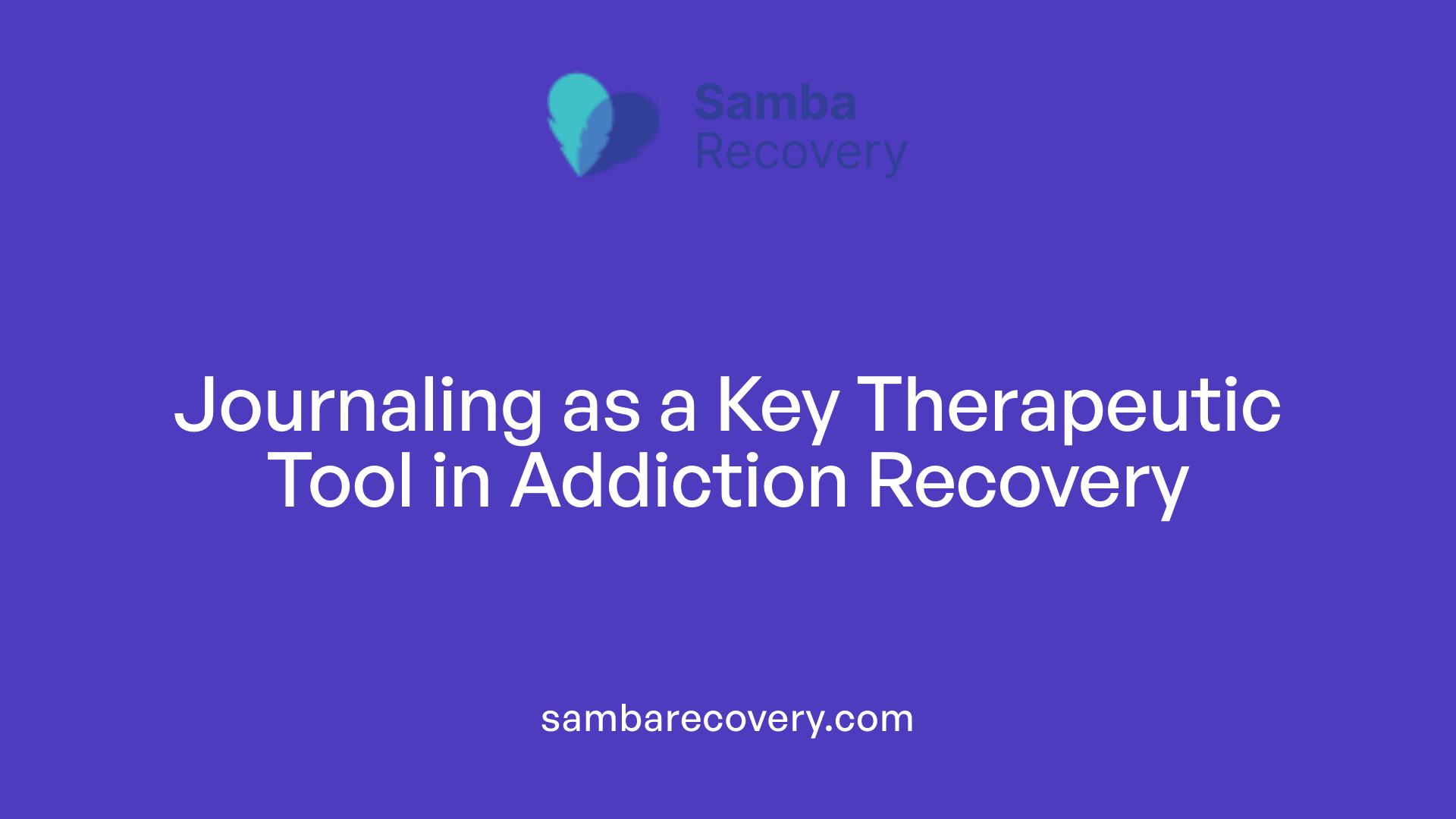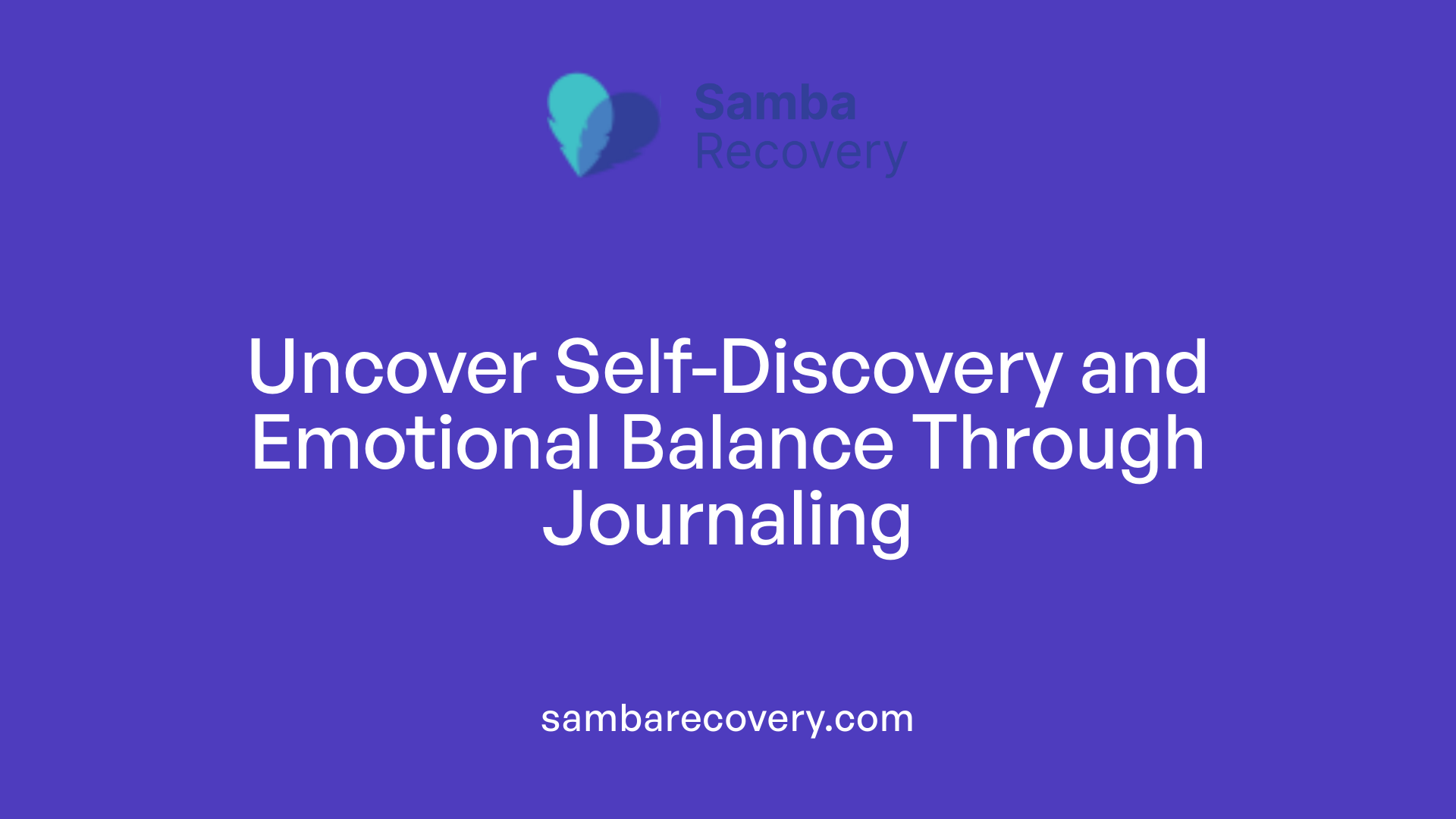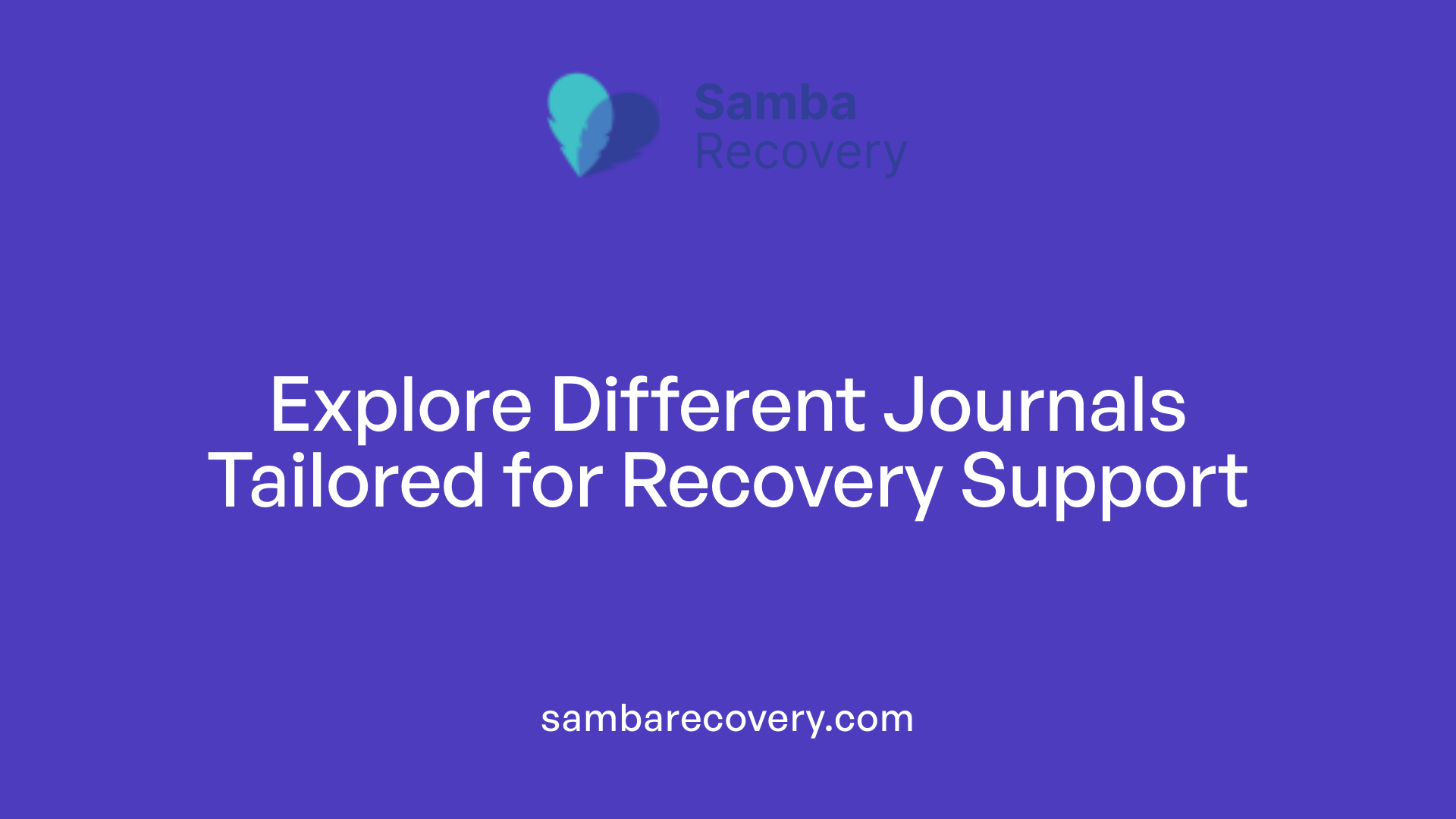The Transformative Power of Writing in Addiction Recovery
Journaling has emerged as a cornerstone in modern addiction treatment, offering a powerful, versatile approach to emotional healing, self-awareness, and relapse prevention. This article explores how journaling serves as a therapeutic tool, its benefits for those in recovery, effective techniques, and its overall importance in promoting long-term sobriety.
Journaling as a Therapeutic Framework in Addiction Treatment

What is the role of journaling as a therapeutic tool in addiction treatment?
Journaling serves as a powerful therapeutic approach within addiction recovery by offering a private and safe space for individuals to articulate their thoughts, feelings, and experiences. It helps process intense emotions such as guilt, shame, anger, and sadness, aiding in emotional healing and fostering greater self-awareness.
Through regular writing, individuals can identify patterns and triggers that lead to cravings or relapse, empowering them to develop effective coping strategies. Tracking progress and milestones through journaling also reinforces motivation, builds confidence, and provides a sense of achievement. Moreover, journaling supports emotional regulation by externalizing worries, reducing anxiety, and promoting mindfulness.
Different types of recovery journals—such as gratitude, goal, or reflection journals—are tailored to enhance self-understanding and resilience. The practice not only aids in managing emotional distress but also enhances communication with therapists and support groups, improving overall treatment effectiveness. In essence, journaling acts as an accessible and flexible tool that nurtures emotional well-being, reinforces positive behaviors, and contributes to lasting recovery.
Unlocking Self-Discovery and Emotional Balance through Journaling

What are the benefits of journaling for individuals in recovery?
Journaling is a powerful tool for those going through recovery from addiction, offering many emotional and mental health benefits. It creates a safe and private space for individuals to express their feelings, thoughts, and experiences without fear of judgment.
By putting emotions into words, individuals can better understand their emotional responses, which promotes emotional regulation. Writing regularly helps to identify emotional triggers and develop coping strategies, making it easier to manage stress, anxiety, and feelings of frustration or shame.
Journaling also encourages self-awareness. As one reflects on progress and setbacks, it fosters a deeper understanding of personal motivations and behaviors. This awareness supports the development of self-discipline, as establishing a routine of regular writing can build habits that reinforce recovery goals.
In addition, keeping a journal enhances communication with therapists and support groups, making treatment more effective. It serves as a record of achievements and challenges, which boosts motivation and accountability.
Another important aspect is the promotion of positive self-talk. Writing about successes and strengths can counteract negative thoughts and promote resilience.
Furthermore, journaling helps externalize worries and fears, reducing emotional distress. It can also act as a stress-relief technique, similar to meditation, helping individuals detach from problems and focus on the present.
Overall, journaling supports holistic healing by fostering self-discovery, emotional balance, and resilience—crucial elements for sustainable recovery.
Effective Techniques and Prompts for Meaningful Journaling

What techniques and prompts are effective for journaling in addiction recovery?
Implementing a variety of journaling techniques can significantly enhance the recovery process. One effective approach is using specific prompts designed to foster honesty, self-reflection, and emotional processing. For example, writing letters to oneself or loved ones can promote clarity and forgiveness, helping to resolve lingering feelings of guilt or shame.
Gratitude journaling is another powerful method. Listing things to be thankful for daily can diminish stress, combat depression, and improve relationships by shifting focus toward positive aspects of life.
Setting clear goals and tracking progress within the journal can strengthen motivation and provide concrete evidence of growth. Prompts that explore feelings of stress, cravings, or self-defeating thoughts help users understand emotional triggers and patterns, essential for relapse prevention.
Flexibility in journaling style is also beneficial. Some may prefer free writing, while others might find drawing or using symbols more expressive. Creating a comforting and distraction-free environment for writing encourages consistency.
Establishing a daily routine for journaling ensures this practice becomes embedded in recovery habits, promoting emotional stability and mindfulness. The key lies in maintaining honesty, practicing self-compassion, and being persistent despite setbacks.
Overall, combining diverse techniques with tailored prompts fosters self-awareness, emotional resilience, and sustained progress in addiction recovery. This personalized approach transforms journaling from a simple activity into a vital tool for healing and growth.
Supporting Emotional and Mental Resilience with Expressive Writing

What impact does expressive writing have on trauma and addiction recovery?
Expressive writing plays a vital role in trauma and addiction recovery by providing a safe and private space for individuals to process difficult emotions and traumatic experiences. Research shows that engaging in regular, structured writing sessions—such as writing about stressful or traumatic events—can lead to notable improvements in emotional health.
In studies involving women undergoing treatment for substance use disorders, expressive writing has been associated with significant decreases in trauma symptoms, depression, and anxiety. For example, a clinical trial with 149 women found that those who practiced expressive writing showed greater improvements two weeks after treatment compared to those who engaged in control writing activities. Although short-term increases in negative feelings may occur immediately after writing, these are temporary and do not cause long-lasting distress.
Qualitative feedback from participants indicates that expressive writing allows them to confront and articulate traumatic memories, such as childhood abuse or violence, fostering emotional catharsis and healing. This process helps reduce trauma-related distress and enhances overall emotional resilience.
Considering its low cost, ease of use, and effectiveness, expressive writing is recognized as an accessible complement to traditional therapy. It encourages emotional expression, supports trauma processing, and can reduce the risk of relapse during recovery. Overall, this technique contributes significantly to emotional regulation and helps foster a sense of recovery, empowerment, and inner peace.
Tracking Progress and Promoting Long-term Sobriety
How can journaling be used to track progress and promote lifelong recovery?
Journaling serves as an effective tool for individuals on a recovery journey by offering a dedicated space to document their emotional and behavioral progress. Writing regularly enables them to reflect on their thoughts, feelings, and experiences, helping to identify patterns and triggers associated with cravings or setbacks.
Through honest entries, individuals can acknowledge milestones and achievements, which bolster self-confidence and motivation. Noticing improvements over time reinforces a sense of accomplishment and fuels continued commitment to sobriety.
In addition, journaling helps in recognizing emotional states that might lead to relapse, such as stress, frustration, or loneliness. By tracking these emotions, individuals develop greater self-awareness and learn to implement coping strategies before a crisis occurs.
Incorporating specific strategies, like maintaining trigger logs or gratitude lists, enhances resilience and stress management. These practices highlight positive aspects of recovery and encourage a focus on personal growth.
Journaling also fosters accountability; setting goals and regularly reviewing progress motivates individuals to stay committed. It acts as a personal roadmap, guiding them through challenges and celebrating successes.
Overall, journaling is a flexible, personalized approach that supports ongoing self-reflection and emotional healing. It helps build a foundation for lifelong sobriety by nurturing mindfulness, self-discipline, and hope, essential for lasting recovery.
The Diversity of Journals and Their Roles in Supporting Recovery

What types of journals are used in addiction treatment and recovery?
Various journals are employed to support different stages and aspects of addiction recovery, each serving unique purposes to enhance emotional well-being and foster sustained sobriety.
Gratitude Journals help individuals focus on positive aspects of life, reducing stress and improving relationships. These journals encourage daily reflection on things one is thankful for, which can foster optimism and emotional resilience.
Mood Trackers allow individuals to monitor their emotional states over time. Recognizing patterns helps identify triggers and understand how moods influence cravings or risky behaviors.
Trigger and Relapse Prevention Journals are specifically designed for noting situations, thoughts, or feelings that lead to substance use. They assist in planning strategies to cope with or avoid these triggers.
Therapeutic Journals often complement therapy sessions, where individuals write about their experiences, progress, and insights gained through treatment. These can include detailed reflections or responses to prompts provided by mental health professionals.
Goal-Setting and Progress Journals serve to motivate by tracking achievements, milestones, and long-term goals. Regular updates reinforce commitment to recovery and illustrate personal growth.
Creative, Spiritual, and Reflection Journals offer outlets for expressing feelings that might be hard to articulate verbally. They promote emotional processing, spirituality, and deep introspection.
Health and Wellness Journals focus on tracking physical health, medication adherence, nutrition, and exercise, recognizing their importance in holistic recovery.
Each type of journal can be tailored to meet personal preferences and specific needs, creating a comprehensive self-care toolkit.
Customization and purpose of each journal type
The design of each journal depends on individual goals and recovery plans. For example, someone struggling with cravings might prioritize trigger journals, while another seeking emotional balance might mainly use gratitude or reflection journals.
Customizable prompts can guide writing, making journaling accessible even for beginners. Digital versions offer reminders and easier tracking, while traditional paper journals might appeal to those who find writing by hand more therapeutic.
In summary, the diverse range of journals—gratitude, mood, trigger, therapeutic, goal-oriented, and creative—are vital tools in supporting the complex journey of addiction recovery. Each serves to cultivate awareness, reinforce positive behaviors, and provide emotional relief, contributing to long-term success.
Empowering Long-Term Recovery Through Journaling
In summary, journaling is a dynamic and essential component of addiction recovery. Its versatility allows for tailored approaches—whether through gratitude logs, trigger tracking, expressive writing, or goal setting—all contributing to emotional stability, self-awareness, and resilience. Engaging in regular journaling fostered by honesty and consistency can help individuals navigate the complexities of recovery, recognize early signs of relapse, and celebrate personal milestones. As a safe space for reflection and expression, journaling not only enhances therapeutic outcomes but also empowers individuals to maintain their sobriety and pursue a fulfilling, healthy life beyond addiction.
References
- Journaling in Recovery: What Are The Benefits? – Golden Gate
- Why Journaling is a Powerful Recovery Tool
- The Power and Benefits Of Journaling In Addiction Recovery
- How Journaling Helps Addiction Recovery
- Expressive Writing as a Therapeutic Process for Drug Dependent …
- Journaling in Recovery: Prompts and Techniques For Healing
- Fifteen Journaling Prompts to Use in Addiction Recovery
- Journaling as an Aid to Recovery






